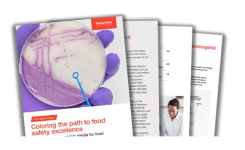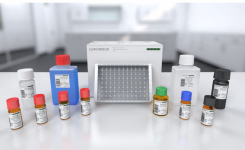Rapid Diagnosis of Infections Linked to Heart Attacks
go back to news archives| | The Thermo Scientific range of diagnostic culture media and rapid identification kits includes a number of innovative products for the faster identification of common respiratory and urinary tract infections. Such infections have recently been associated with an increased risk of heart attack and stroke. |
| Rapid identification of the organisms responsible for infections assists in early diagnosis and prompt administration of suitable antimicrobial therapy. Among the rapid tests available from Thermo Scientific is the Thermo Scientific Dryspot Pneumo Test (product code: DR0420), which provides a fast and simple screening procedure for Streptococcus pneumoniae, a primary cause of bacterial pneumonia. |
Source : Thermo Scientific. View archived contact details
Posted on December 16, 2005
















